As with any medical procedure, laser eye surgery can seem quite daunting and scary. There’s a lot of information available online, but it can be hard to know the difference between fact and myth. Especially when a lot of this content isn’t written by qualified people. You might be left with a lot of questions, so here are some of the most common myths we find people have about Laser Eye Surgery.
If you have more questions, please get in touch with our friendly team. If they can’t answer your questions over the telephone or by email, book in for a free laser suitability assessment. We can then gather more information about your eyes, to better answer your questions.
Myth #1: Laser Eye Surgery Is Painful
“Does laser eye surgery hurt?” is one of our most frequently asked questions on laser eye surgery. Short answer: no, laser eye surgery is not painful.
Prior to surgery, Dr. Logan applies topical anaesthetic drops to the eyes, which completely numbs them. You will only feel a slight pressure during the surgery. Typically, you will be in the theatre for about 15-20 minutes, but the laser eye surgery itself only takes place for around 2-3 minutes, depending on the type of procedure.
After the surgery, we prescribe medication to make recovery as pain-free as possible. Patients can experience some discomfort post-surgery – in most cases for about 8 hours, which is completely normal. The medication should help alleviate this. We will explain the different types of medication prescribed, and provide pointers on how to manage your recovery.
We will see you the day after surgery and then again a week after surgery to monitor your recovery. As part of your post operative care, we’re on hand to talk to you over the phone, or see you as frequently as necessary during your recovery period. These visits are covered in the surgery cost.
Myth #2: You are knocked out / asleep during the surgery
Sorry! But we don’t put you to sleep. We don’t use general anaesthetic for laser vision correction. For some people the idea of being awake during surgery is a bit daunting, but the surgery is not invasive enough to warrant a general anaesthetic so we use local anaesthetics only. This means NO INJECTIONS and NO NEEDLES. The anaesthetic is administered as an eye drop. A similar eye drop to that which we use in your consultations beforehand. So you get to try it out before the day of surgery.
Myth #3: Laser Eye Surgery Isn’t Permanent
Laser eye surgery changes the shape of the cornea to correct eyesight. This correction is permanent and majority of patients will not require glasses or contact lenses post-surgery. However, those over the age of 50 may still require occasional reading glasses.
Your eye is a living organ and therefore can change over time, just as the rest of your body will. Laser eye surgery doesn’t prevent age-related eyesight changes, like cataracts or presbyopia. Presbyopia is an age-related eye problem where the lens of the eye becomes more stiff, less elastic and the muscles around it can no longer change its shape. This results in a loss of focus on close-up objects.
In our opinion, laser eye surgery is definitely worthwhile. Getting independence from your glasses and contact lenses is generally enough to encourage people to get surgery. Our own laser eye surgeon, Dr Andrew Logan, had laser eye surgery himself in 1996 and still doesn’t need glasses; that’s 25 years free from glasses! If you’re not sure if laser eye surgery is cost-effective for you, we wrote an interesting article discussing whether or not laser eye surgery could save you money.
Myth #4: Laser Eye Surgery Only Works For Short-Sighted People
This is also untrue. Laser eye surgery can be used to correct a variety of eyesight problems, not just short-sightedness.
At Wellington Eye Centre, we offer three different types of laser eye surgery (the only ones currently available in New Zealand) – SMILE®, LASIK and PRK. SMILE eye surgery is suited to short-sightedness. But LASIK surgery is able to correct presbyopia (age-related long sight), hyperopia (farsightedness), myopia (short-sightedness) and astigmatism (unevenly curved cornea).
Our free suitability assessment will determine if laser eye surgery is suitable for you and if so, which procedure will be most effective for your eyesight condition.
Myth #5: The Laser Used Is Hot and there is a Burning Smell.
The lasers used in laser eye surgery are cold – and totally different to the lasers in science fiction films!
Sometimes people say there’s a burning smell during the procedure. This can be the case in PRK and LASIK eye surgery but it’s not a cause for concern! The smell is actually a result of the laser releasing carbon atoms into the air. We promise nothing is actually burning!
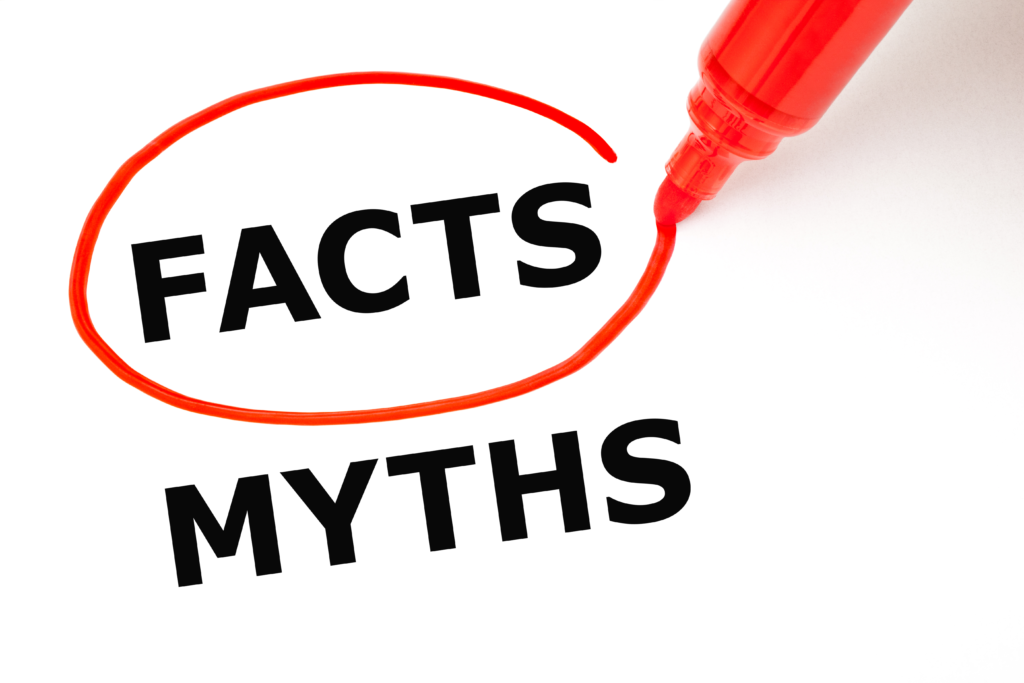
Myth #6: I’m too old for Laser Eye Surgery!
Many people are surprised that they can still have laser eye surgery after the age of forty. When in fact many people will still be suitable for laser eye surgery up until their sixties.
This misconception came about as most people thought that the age-related visual issue, presbyopia, which occurs after the age of 40 years was not correctable.
Presbyopia makes it harder to focus on near objects and is why people usually need reading glasses as they age. But laser eye surgery can help reduce the visual impact of presbyopia. We can’t cure the condition, but we can make it easier for you to see your paperwork, computer screen, and maintain your distance vision without having to be dependent on reading spectacles, bifocals or progressive lenses.
So, what are the laser eye surgery options for people older than 40 years old?
We are the first laser eye surgery clinic in New Zealand to offer the sophisticated laser blended vision technology. This gives people over 40 the opportunity to enjoy the benefits of laser eye surgery. In this procedure, the dominant eye is corrected mainly for distance vision and the non-dominant eye for near vision. While also increasing each eye’s range of focus. This procedure enables patients to see at near, intermediate and far distances without glasses or contact lenses.
For more information check out our article on how your age can affect your suitability for laser eye surgery.
Myth #7: I only need reading glasses, so I can’t have Laser Eye Surgery
Not true! You might need reading glasses for a few reasons. Most likely you are over 40 years of age and your need for reading glasses has been increasing as you age. Or you are long-sighted and may have needed reading glasses prior to turning 40.
This myth is closely related to Myth #4 and #6 above. LASIK and PRK are both able to correct long-sightedness. LASIK Presbyond surgery uses laser blended vision technology, which reduces your dependency on reading glasses.
Myth #8: If Laser Eye Surgery Goes Wrong, Nothing Can Be Done To Correct It
In the unlikely situation that the results are not as expected, Dr Logan may be able to perform further corrective treatments. We strive to set realistic expectations in our patient’s consultations prior to surgery. We will only recommend a procedure if it is best suited to that individual’s eyes and needs.
Myth #9: You Can’t Get Laser Eye Surgery After Cataract Surgery
In cataract surgery, the surgeon removes the cloudy lens from the eye and replaces it with an intraocular lens implant (IOL). The IOL is a transparent disc which is a similar shape to your lens. Nowadays, the surgeon can also correct other eyesight issues such as short-sightedness, farsightedness and astigmatism with this IOL. The lens implant can be customised to correct these refractive errors, removing the patient’s need for glasses or contact lenses post-surgery.
Depending on age, if the lens implant hasn’t corrected your eyesight condition, laser eye surgery may still be an option.
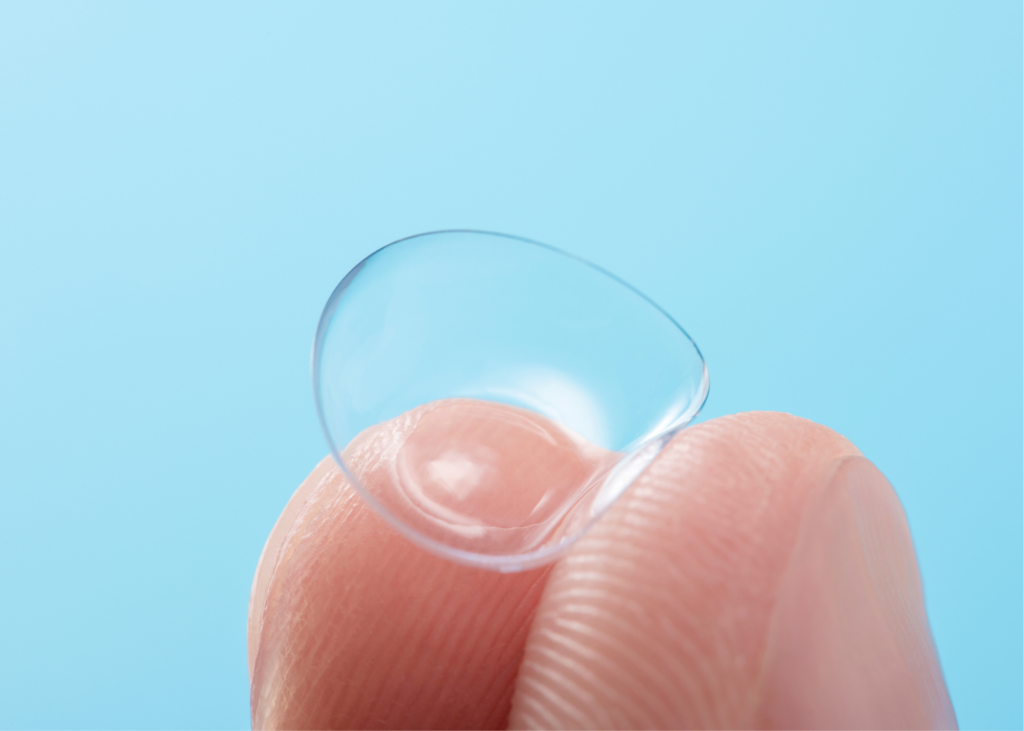
Myth #10: After Laser Eye Surgery you can never wear contact lenses again!
After laser eye surgery we hope you won’t need to wear contact lenses again, but for most people, they are able to wear contact lenses after the surgery.
Why would someone want to wear contact lenses after eye surgery?
Well for those who have Presbyond LASIK surgery, they will in most cases have no need for contact lenses or spectacles. But a very small percentage of people will want a little bit more help with very specific visual tasks. This might be something like long-distance night driving or cross stitch. In both these cases, correcting one eye a little bit more can improve visual comfort. So a reversible solution like spectacles or a contact lens may be ideal.
It’s also possible that after laser vision correction you might wish to wear cosmetic contact lenses. This should be OK, but please make sure you treat cosmetic contact lenses as carefully as any medical device or treatment. Make sure your cosmetic contact lenses are fitted by an Optometrist, do not share these contact lenses with others and practise good hygiene. There are risks associated with cosmetic and coloured contact lenses that are important to be aware of.
Why would people think they couldn’t wear contact lenses after laser eye surgery?
The shape of the cornea is altered with surgery, this can mean that contact lenses may not sit on the surface of the eye in the same way as they did pre-surgery. That doesn’t mean contact lens wear is impossible, it may mean you will need a different brand or size, or you may need custom-made contact lenses.
In the first 6 months after laser eye surgery, the eyes can be dry, which would make contact lens wear less comfortable and may even mean the contact lenses are increasing your risk for eye infections.
If you are thinking of wearing contact lenses after laser eye surgery – please check with your Eye Surgeon or Optometrist.
Myth #11: Laser Eye Surgery Is Exactly The Same At Different Clinics
Laser eye surgery in New Zealand is becoming increasingly popular. There are a number of qualified eye surgeons to pick from, but the technology used to perform the surgery may differ.
The newer lasers available are generally more precise, can complete the procedure more quickly and cause less discomfort during the procedure. The Wellington Eye Centre was the first clinic in New Zealand to install the VisuMax femtosecond laser – a leading piece of technology developed in Germany. This type of laser is currently the only one that is accurate enough to perform SMILE surgery. We are now proud to say we are the first to install the latest VISUMAX 800 laser. This type of technology has revolutionised laser eye surgery and we are very proud to be leading the way in New Zealand!
Although ophthalmologists receive similar training, it’s important to do some research before you choose a surgeon and clinic. There is a lot of skill and precision required in laser eye surgery, so choosing someone you can trust is a must! We’ve written an article on our ophthalmologist, Dr. Andrew Logan, who happens to be New Zealand’s first LASIK and SMILE eye surgeon with over 20 years of experience. Have a read if you would like to learn more about Dr. Logan and his experience.
And finally, the service a patient receives can vary between clinics. Choosing a clinic that prioritises patient satisfaction is a must. Laser eye surgery can seem quite daunting, which is why we ensure our patients are guided through the process and feel comfortable and supported every step of the way.
There you have it – laser eye surgery myths dispelled!
Hopefully, we have set the record straight with these laser eye surgery facts. If you have any other questions, get in touch – the team would love to help. You can also have a free laser suitability assessment, where our technician can talk you through any concerns. Our Wellington laser eye surgery clinic isn’t our only location, we also have clinics in Hawkes Bay and Nelson and we operate on patients from all over New Zealand.
SMILE ® and VisuMax ® are registered trademarks of Carl Zeiss Meditec.
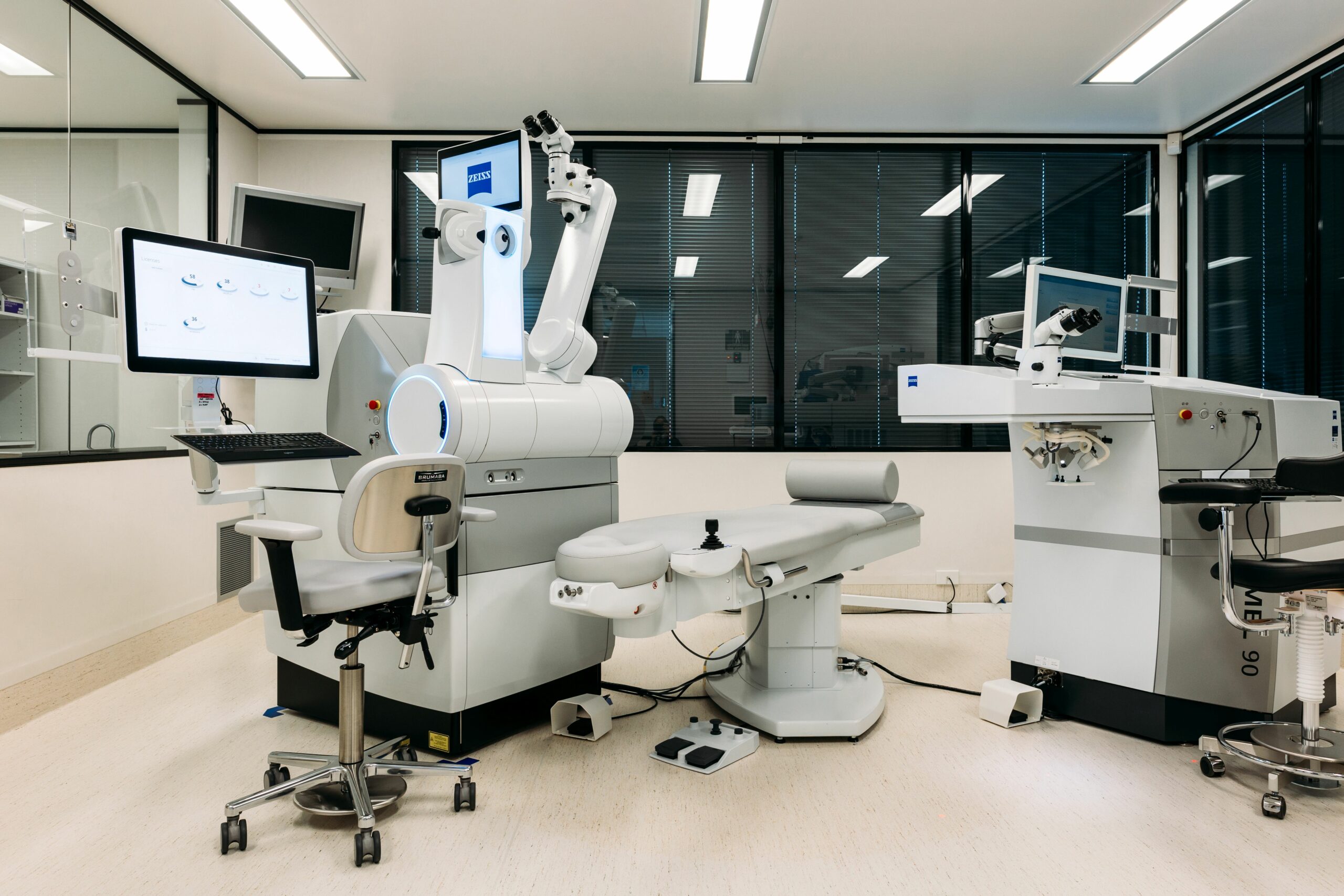
What to Expect on The Day of Surgery
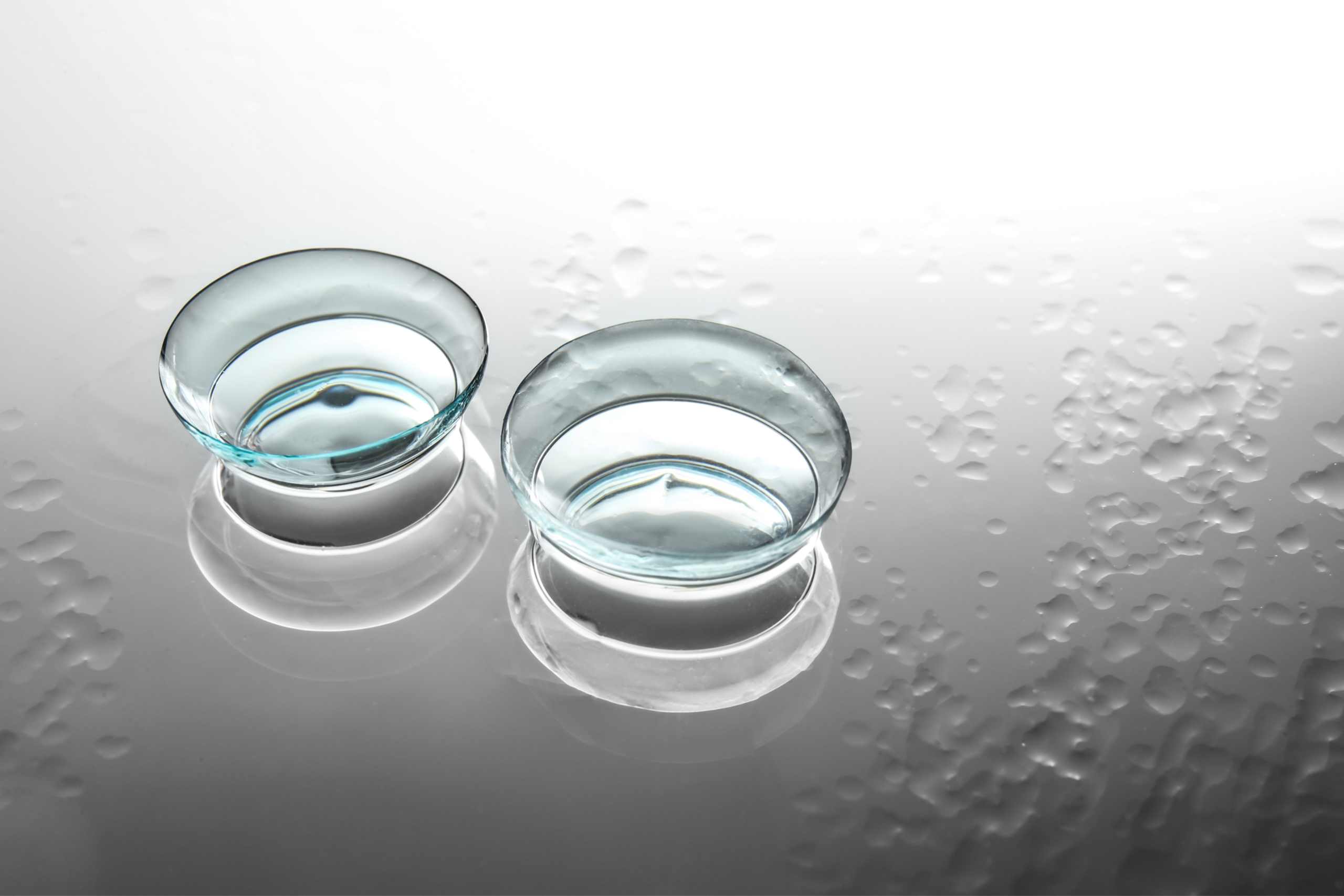
What happens when your vision after laser vision correction surgery is not what you expected?

Am I too old to have laser eye surgery?
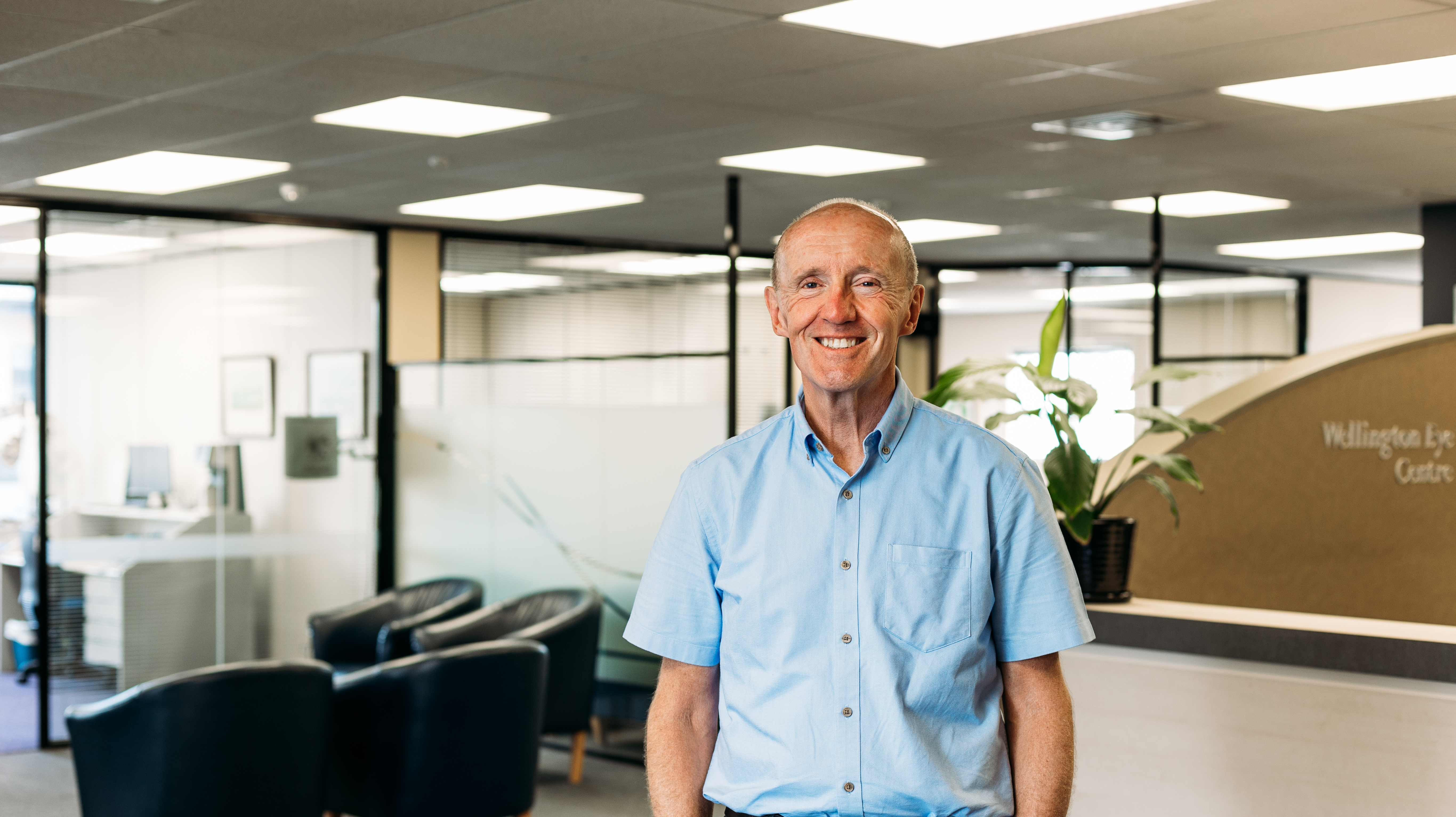
Dr Andrew Logans Innovation Achievements

Laser Eye Surgery for Sports
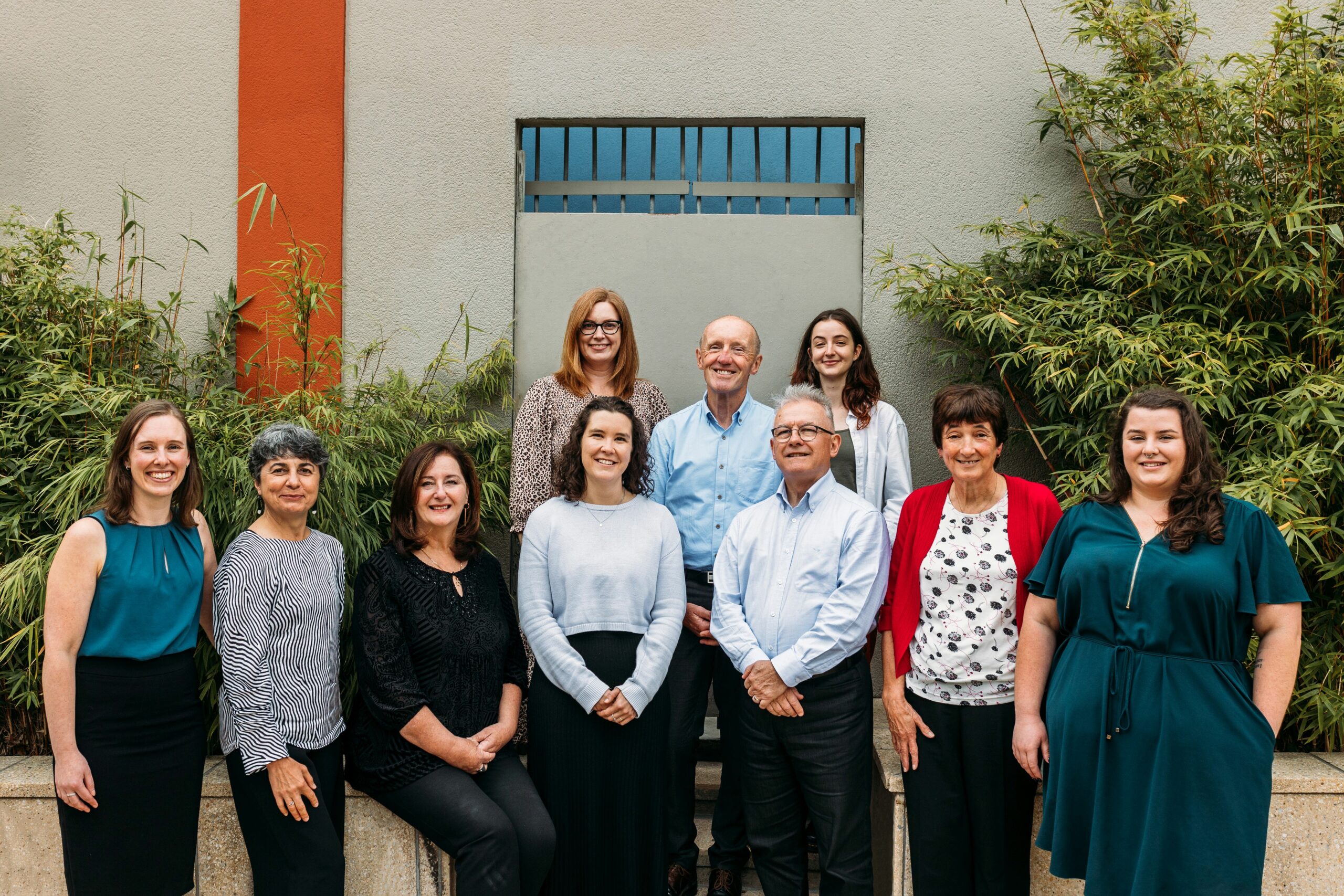
Meet The Team at the Wellington Eye Centre

Festive Season and Your Eyes

Naumi Studio Hotel Wellington

What to Expect on The Day of Surgery

